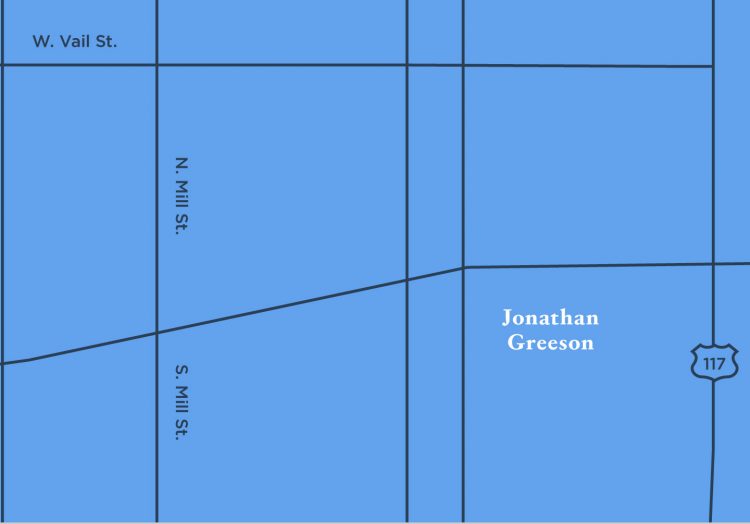“When should I invest?” That is one of the first questions I’m asked when I tell people I am a CFP® Professional. Of course, they are asking from an economic view hoping to maximize their return on investment. Unfortunately, I cannot give them a definitive answer because I’m not a fortune teller.
 I’ve often wondered why those who claim the ability to see the future don’t buy lottery tickets? Now, if I had the ability to turn a two-dollar investment (my estimated cost of a lottery ticket) into millions of dollars, I would be a fool not to do that, right? I’ve heard buying lottery tickets violates their ethical code.
I’ve often wondered why those who claim the ability to see the future don’t buy lottery tickets? Now, if I had the ability to turn a two-dollar investment (my estimated cost of a lottery ticket) into millions of dollars, I would be a fool not to do that, right? I’ve heard buying lottery tickets violates their ethical code.
Whether or not you believe that is up to. It may be fun to have your fortune read. However, we should always remember the fine print on those advertisements where it says FOR ENTERTAINMENT PURPOSES ONLY.
When Should You Invest: Financial planners are not fortune tellers, but I believe we can be fortune BUILDERS.
Recently, my marketing coach asked me what I’ve learned about the industry as a financial planner with Muscular Dystrophy. I told her I hated how the industry ignores a huge group of people.
As a child with a disability I remember there were many resources, programs, and advisors to help me navigate the challenges faced in life. After completing my education and “aging out of the system,” I started to learn just how discriminatory these services can be. Of course, funding is limited, so it’s understandable that there has to be restrictions as to how many people can be served.
Unfortunately, more often than not these restrictions only use a financial scale. I was actually ineligible for any assistance until I turned 18 because my parents made too much money. Fortunately, my community has always been great and helped me daily, but not all of the children with disabilities are that lucky. Honestly, to me being a child with a disability was much easier than being an adult.
Basically, one of the hardest pills I had to swallow as an adult was being trapped in poverty. I hate to say it so bluntly because these are wonderful programs helping many people. However, I get frustrated with the reality of my life. I can either accept poverty or become rich overnight, so I can pay for my medical needs.
I’ve noticed a similar trend in the financial services industry.
On one end, there are financial support programs for people in poverty, similar to the resources available for people with disabilities. At the other end are the financial planning firms that require account minimums.
Again, I understand the reasoning behind the restrictions at both ends of the spectrum. Unfortunately, I believe this results in a large portion of the population feeling as if they are on their own. Human beings naturally need companionship and support to succeed in life. That should include our financial situations as well.
believe this results in a large portion of the population feeling as if they are on their own. Human beings naturally need companionship and support to succeed in life. That should include our financial situations as well.
My fear is that those in the poverty range will settle and never move up. I can say from my own experience that losing my disability benefits is a major concern. One hospital stay could bankrupt my entire family. I know they love me too much to just let me die.
That fact weighs heavily on my mind when trying to move up in the world financially. There’s nothing I want more than to pay my own way and be off of government assistance. For that to happen there may be a time where I could be ineligible for healthcare coverage. That could be extremely risky for my family and me.
I’m sure there are many people on government assistance who deal with the same concerns. Moving up is difficult in general, but for some it’s terrifying.
Then the true middle class is stuck in their situation saying, “The rich get richer, the poor get help, and I’m just screwed!”
Don’t believe me? Watch your social media feed and I’m sure you’ll see a meme stating the same eventually.
What is the solution?
One of my favorite comic book characters is Captain America. He had an iconic quote in the Civil War storyline where he said:
Doesn’t matter what the press s ays. Doesn’t matter what the politicians or the mobs say. Doesn’t matter if the whole country decides that something wrong is something right. This nation was founded on one principle above all else: the requirement that we stand up for what we believe, no matter the odds or the consequences. When the mob and the press and the whole world tell you to move, your job is to plant yourself like a tree beside the river of truth, and tell the whole world — “No, you move.”
ays. Doesn’t matter what the politicians or the mobs say. Doesn’t matter if the whole country decides that something wrong is something right. This nation was founded on one principle above all else: the requirement that we stand up for what we believe, no matter the odds or the consequences. When the mob and the press and the whole world tell you to move, your job is to plant yourself like a tree beside the river of truth, and tell the whole world — “No, you move.”
While many feel this quote is only about resistance and fighting physical battles, I think there is more to it. I think it means we have a choice. We can either accept where we are or we can try to move forward. Yes, we all face challenges, but I do believe we can choose whether or not we face those challenges and work around them.
This message is for those with the courage to strive for a better life in spite of the challenges we face. I firmly believe the American Dream is alive and well. What we all have to realize is that dream is different for EACH American citizen. We all cannot fit in established, restrictive guidelines.
When should you invest? Every darn day!
You laugh, but it’s true. Each day we invest our money, time, and energy into multiple actions in that thing we call life. Whether or not these investments have a positive return on our present or future life is up to us.
You should never invest without a purpose.
Just “wanting to make more money” is not a clear purpose. Focusing a fund on a single purpose, such as retirement, prevents us from going in and out of the market. One of the most important tools an investor has is patience.
There will always be reasons for us to spend money. When our investment accounts have a purpose, I think we will be less likely to use that money on those random expenses. A purpose helps us maintain our discipline and patience.
You should also invest when you can invest consistently.
Dollar cost averaging is one of the easiest ways for a smaller investor (i.e. the middle class citizen) to maximize their investment over time. The idea of putting $10,000 in an investment account when you’re just starting your adult life is terrifying! It’s easy to see why young people are afraid of the stock market!
Not to mention the contribution limit for an IRA is currently $6,500 a year. No, a financial planner will not make money with these accounts at first. Actually, we lose money until accounts reach a certain level. It’s easy to see why some firms won’t allow advisors to accept clients with less than a certain amount of investable assets.
not make money with these accounts at first. Actually, we lose money until accounts reach a certain level. It’s easy to see why some firms won’t allow advisors to accept clients with less than a certain amount of investable assets.
Fortunately, I am not required to follow these rules. If you’re going to trust me to invest your money, then I’m willing to invest in you as well. I’m interested in a long term relationship with my clients. All good relationships involve a little give and take. Of course, there will be some requirements like consistent contributions to the account.
Finally, you should start investing in the summer.
This is purely my theory for people with small initial investments. Again, consistency is important here.
There’s an old saying in the market, “Sell in May and go away.” I guess it originated when more people made trades in person. Traders wanted to take the summer off, sit on the beach, and think about their money.
Of course, things are different now as we have instant access to everything all of the time. However, I think there is still some truth to the adage. During the summer, the markets can still be less active, which is great for a new investor.
If a small investor wants to start with something like $500, then contribute $500 a month, a less active market can be better. This would allow the investor to build their fund during a time where, hopefully, there wouldn’t be as many jolts in the market.
When stocks rise, investing is fun and easy. However, it becomes really hard to stay invested when stocks go down. By investing in the summer, I hope investors can slowly get acclimated to market movements. Then they should become smarter, more disciplined investors, which can lead to greater success over time.
Conclusion: When should you invest?
I’ve never actually been to see it, but I’ve always liked Emma Lazarus’ poem on the Statue of Liberty:
 “Give me your tired, your poor,
“Give me your tired, your poor,
Your huddled masses yearning to breathe free,
The wretched refuse of your teeming shore.
Send these, the homeless, tempest-tossed to me,
I lift my lamp beside the golden door!”
To me, this is what the American Dream is all about. We don’t all have to be billionaires, celebrities, or sport heroes. Many of us just want to build a life where, eventually, we can choose whether or not we have to work. That’s where the financial planner comes in to your life.
The poem also reminds me of what Jesus said in Matthew 11:28:
Come to me, all who labor and are heavy laden, and I will give you rest.
Christians strive to be like Jesus as He’s the perfect role model. This verse reminds me of my mission as a financial planner. We’re all supposed to work hard in our chosen careers, but there will come a time when we can rest.
Retirement is not an end of life event; it is supposed to be a reward for time served helping our fellow man. Unfortunately, you have to plan for that freedom. Fortunately, I know a guy!
Return on investment is definitely important. However, my top priority is that each client can rest in the peace of mind knowing we’re working to their future goals. Life is hard enough, why not get some help?
When should you invest? The bottom line is that you should invest when you’re ready. I’ll be glad to help you get there. Email me.


